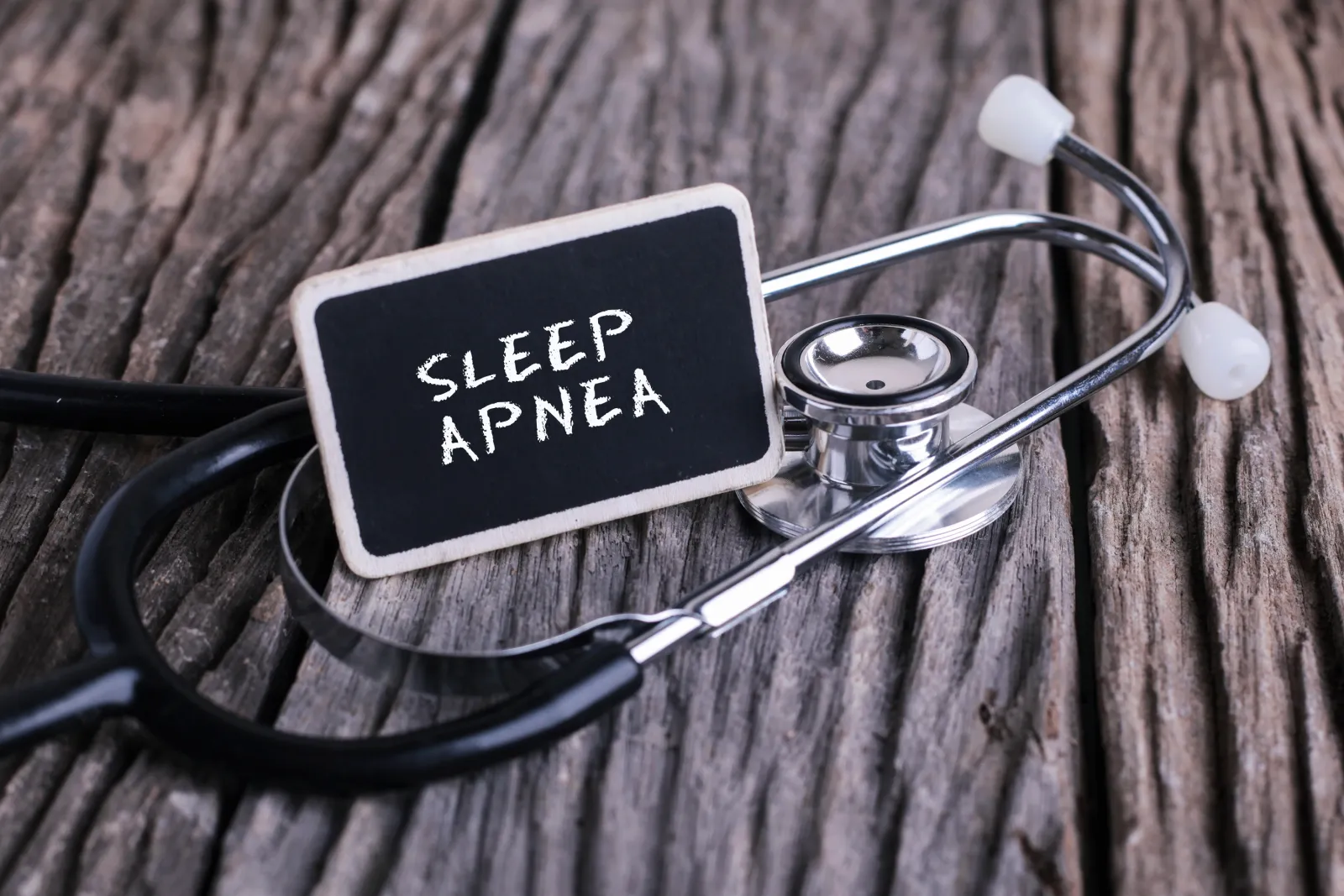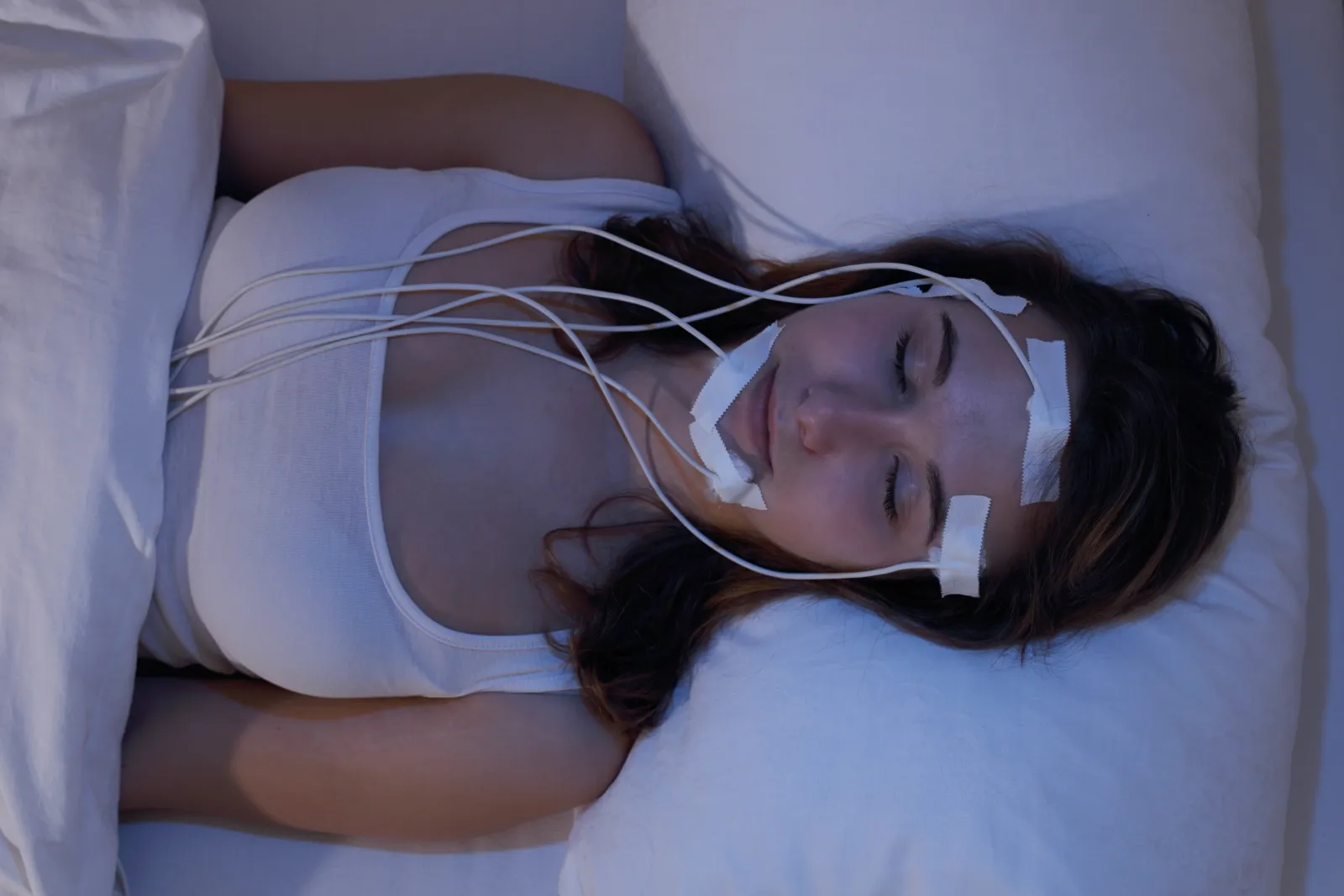
Imagine you're asleep and suddenly stop breathing.
For many, this already happens unknowingly.
Sleep apnea is a sleep disorder in which a person repeatedly stops breathing during sleep. A narrowed or blocked airway restricts air from getting to the lungs, often causing a person to snore loudly or gasp for air. These pauses in breathing can occur a few times a night or, in severe cases, more than once every two minutes during sleep.
Around 34% of men and 17% of women in the U.S. live with obstructive sleep apnea (OSA), the most common form of sleep apnea. Researchers estimate that over 80% of cases of moderate to severe OSA are undiagnosed. This means that millions of people are living with some of the consequences of sleep apnea — with common symptoms like interrupted sleep, trouble concentrating, daytime sleepiness, and chronic headaches — yet don't know they have this disorder.
In this blog, we'll discuss the effects of sleep apnea beyond feeling unfocused and tired during the day. Sleep apnea is associated with a range of serious health complications, including coronary heart disease, heart failure, stroke, and an irregular heartbeat.
Sleep Apnea and Heart Disease
Heart disease is the leading cause of death globally.
While several behaviors such as diet, exercise, and alcohol play a role in the heart, untreated sleep apnea increases the risk of heart arrhythmias and cardiovascular disease.
Patients with sleep apnea are 2-4 four times more likely to develop heart arrhythmias (abnormal heart rhythms) than people without this condition. Additionally, sleep apnea increases the risk of heart failure by 140% and the risk of coronary heart disease by 30%.
Sleep Apnea, Obesity, and Heart Disease
Research suggests that obesity may play an important role in the development of both sleep apnea and heart disease. However, keep in mind that sleep apnea alone, with or without obesity, can increase the risk of heart disease.
Sleep apnea and obesity independently increase the risk of health conditions that negatively affect heart health, like hypertension (high blood pressure), unhealthy cholesterol levels, and diabetes.
Can obesity cause sleep apnea?
Obesity increases the chance of sleep apnea diagnosis, often related to increased deposits of fat in the neck that narrow or block the upper airway during sleep.
Researchers have found that even a 10% increase in body weight increases the risk of OSA by 600%. While 60 to 90% of people with sleep apnea also have obesity, only around 30% of people diagnosed with obesity have sleep apnea.
Can Sleep Deprivation Cause Heart Disease?
Insufficient or fragmented sleep is common in patients with sleep apnea, and regularly missing sleep can negatively affect heart health. Heart rate and blood pressure drop during sleep as breathing becomes stable and regular. Without regular sleep, the body is unable to rest and recuperate.
Not getting enough sleep as a result of conditions like OSA means not giving the heart and cardiovascular system this important recovery time. Chronic sleep deprivation has been linked to increased risk for hypertension, heart disease, heart attacks, and stroke.
3 Ways Sleep Apnea Affects the Cardiovascular System
The repetitive pauses in breathing that characterize sleep apnea can stress and potentially damage not only the heart but the whole cardiovascular system.
While researchers are continuing to learn about the ways in which sleep apnea affects the cardiovascular system and contributes to heart disease, several biological pathways have been suggested.
Activating the sympathetic nervous system
Changes in pressure within the chest
Oxidative stress
1. Activating the Sympathetic Nervous System
Each time a person with sleep apnea stops breathing, the level of oxygen in the blood decreases. As the body becomes deprived of oxygen, specialized cells — called chemoreceptors — detect these changes and activate the sympathetic nervous system to respond, which is part of the nervous system responsible for reacting to stressful or dangerous situations. The sympathetic nervous system triggers the body to gasp for air, which sometimes wakes a person out of sleep.
The sympathetic nervous system also responds to low oxygen levels by constricting blood vessels and increasing heart rate and blood pressure. As pauses in breath continue through the night, repetitive changes in blood pressure may lead to hypertension or make existing hypertension worse.
2. Changes in Pressure Within the Chest
When a person with obstructive sleep apnea (OSA) attempts to breathe, they inhale against a narrowed or closed upper airway. These unsuccessful, forced inhalations can cause substantial changes in pressure within the chest cavity.
Over time, these repetitive changes in intrathoracic pressure can damage the heart. Intrathoracic pressure changes can lead to atrial fibrillation (an irregular, often rapid heartbeat), problems with blood flow to the heart, and even heart failure.
3. Oxidative Stress
After each pause in breath, a person with sleep apnea once again inhales successfully. This inhale brings much-needed oxygen back into the lungs, blood, and body tissues.
Unfortunately, frequent changes in oxygen levels can cause significant stress on the body, called oxidative stress. Oxidative stress can promote systemic inflammation, as well as neurochemical and physiological reactions that increase the risk of heart disease.
How to Tell If You Have Sleep Apnea
Untreated sleep apnea increases the risk of many health factors, so it's essential to know how to tell if you have sleep apnea and when it's time to reach out to a doctor. Common sleep apnea symptoms include
- Frequent, loud snoring or gasping during sleep
- Reduced breathing or pauses in breathing during sleep
- Daytime sleepiness and fatigue
- Difficulty maintaining attention and concentration
- Dry mouth or headaches when waking
- Sexual dysfunction or decreased libido
- Waking up often at night to urinate
What do I do if I have these symptoms?
Primary care doctors or specialists (like sleep specialists) are all excellent resources if you're concerned about having sleep apnea. Diagnostic tests for sleep apnea often include a comprehensive sleep evaluation and polysomnography to diagnose or rule out this serious condition.
Summit Sleep Services is a comprehensive sleep disorder facility that is accredited by the American Academy of Sleep Medicine. Patients are evaluated by a specialist sleep physician during an initial consultation appointment at the clinic, conveniently located off Weisgarber Rd. in Knoxville. The physician will talk with you about your sleep problems and review your sleep and medical history. Once this is done, an appropriate treatment plan is started. The treatment plan often includes a sleep study at our facility.

After the assessment period, and any subsequent sleep studies that might be performed, your information will be reviewed and interpreted by your sleep physician. At this point, a more accurate diagnosis and treatment recommendations can be made.
Reducing the Risk of Heart Disease: Treating Sleep Apnea
The first step you should take to protect your heart health is to talk to a specialized sleep doctor about sleep apnea.
If a person is diagnosed with sleep apnea, treatments are often effective. Treatment for sleep apnea depends on the type of sleep apnea detected and may include:
- Lifestyle changes: Doctors may begin by informing patients about lifestyle changes that may reduce the severity of this condition. Weight loss, exercise, limiting alcohol, quitting smoking, and even changing your sleeping position may be helpful.
- Positive airway pressure (PAP) devices: PAP devices pump air through the airway, preventing the upper airway from collapsing during sleep.
- Mouthpieces and oral appliances: Oral appliances reduce disordered breathing by changing the position of the jaw, tongue, or other part of the body that's constricting the airway.
- Mouth and throat exercises: Depending on the cause of sleep apnea, special exercises of the mouth and throat may help tone these muscles, making them less likely to interfere with breathing during sleep.
- Surgery: Surgery for sleep apnea may involve changing parts of the body that cause airway constriction or implanting devices that causes tightening of the muscles around the airway.
Treatment is based on the diagnosis, which can involve an in-depth analysis of the individual needs of each patient. Our board-certified specialists are skilled in making the correct diagnosis and efficiently implementing the most effective treatment for your sleep problem.
If you are concerned about your own sleep habits, or those of a loved one, call the Summit Sleep Services team at (865) 909-0744 and schedule your consultation today.
